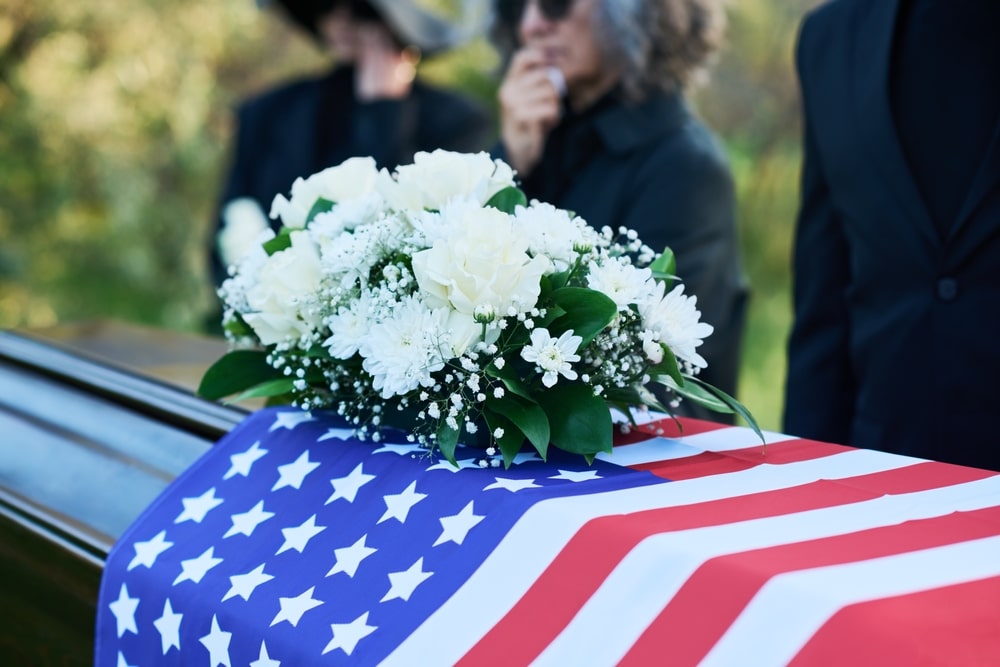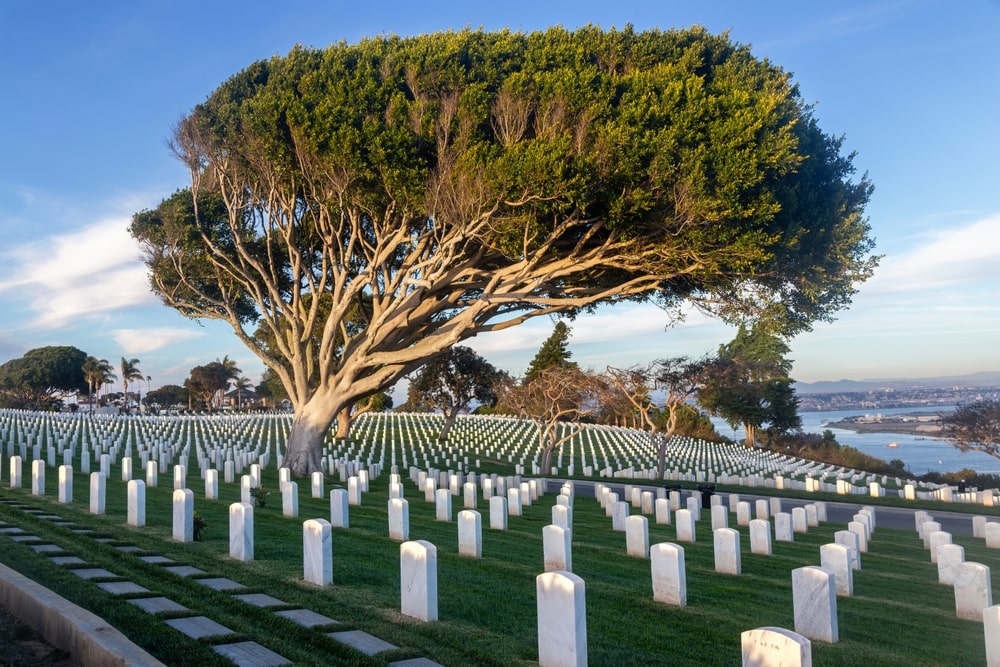In a survey initiated by the Department of Veterans Affairs, it was found that more than 30% of veterans didn’t know the eligibility requirements for burial in a national cemetery. In that same survey, more than 60% of veterans didn’t know the full range of life insurance benefits available to them. What does this mean? While the VA provides many amazing services to veterans, there’s so much available that it’s hard to effectively communicate and spread the word. Veterans’ burial benefits are no exception. So, today, let’s review 4 of the most common misunderstandings about veterans’ burial benefits and set the record straight.
Misunderstanding #1:
After my death, all my spouse has to do is call the funeral home, and they will take care of everything.
As nice as it would be, one phone call isn’t going to be enough if you haven’t prepared in advance. Whether it’s planning a wedding, buying a house, or making funeral arrangements, many of the big events in life take time and coordination to put together. That’s why it’s so necessary to prepare ahead of time.
By taking time now to talk with the VA or the funeral home, you can preplan everything. If you do so, you can more easily ensure that all your spouse has to do is make a phone call. To get started, contact your preferred funeral home and ask them what documentation you need from the VA. Because of their experience with assisting other veterans, they can help you get all your ducks in a row.
Misunderstanding #2:
The VA will pay for my funeral entirely. (Or, the VA won’t pay for anything at all.)
The VA does provide burial benefits to eligible veterans, but they do not pay for everything. Burial and plot allowances assist the grieving family with funeral expenses, but they do not cover the full cost of a funeral.
Here’s what your family can expect to receive (if you are eligible and choose to apply):
- Burial allowance
- Plot allowance
- Interment or inurnment at a national cemetery
- Government-issued grave marker or medallion
- Burial flag
- Presidential Memorial Certificate
- Military honors performed at graveside
Burial and plot allowances provide financial assistance to help your family offset the cost of 1) burial or cremation expenses, 2) plots costs, and 3) transportation costs. Your family receives these allowances as a reimbursement. Therefore, your family will pay for the funeral upfront and then receive partial compensation.
Make sure your family knows to keep all receipts. They will submit these receipts to the VA, who will review all documentation and provide the appropriate reimbursement.
Misunderstanding #3:
Veterans don’t receive anything if they are buried in a private cemetery.
Just like anyone else, you get to choose your final resting place. As a veteran, if you choose a cemetery, you have three options: interment or inurnment at a national veteran cemetery, state veteran cemetery, or private cemetery. However, keep in mind, your veteran burial benefits will change depending on which cemetery option you select. Let’s go over each one briefly.
National Veteran Cemetery
At a national veteran cemetery, the VA completely covers the cost of burial. The National Cemetery Administration will work with the family and the funeral home to ensure that everything is coordinated correctly. Interment or inurnment includes plot/niche, opening and closing of the grave, perpetual care, headstone or marker, burial flag, military honors, and Presidential Memorial Certificate.
While burial is free, national veteran cemeteries have limited space. Unfortunately, you cannot secure a plot in a specific national cemetery, but you can complete all the eligibility paperwork ahead of time. By doing this now, you will make the burial process easier for your family in the future. For more information, contact your preferred funeral home or click here to visit the VA website.
State Veteran Cemetery
While similar to a national veteran cemetery in many ways, state veteran cemeteries are run by individual states and subject to their specific laws and regulations. The VA will still provide a headstone or marker, burial flag, military honors, and Presidential Memorial Certificate, but it’s up to each state whether interment or inurnment is free. In many cases, burial is free or comes with a small charge. Additionally, it’s important to note that the cost of transporting the body to the cemetery may fall to the family.
Since there are differences from state to state, it’s always a good idea to work with the cemetery directly or coordinate through your preferred funeral home.
Private Cemetery
By far, most veterans choose burial in a private cemetery. Even so, they are eligible to receive certain burial benefits. The biggest difference with a private cemetery is that the family is taking on the full financial responsibility of burial. Because of that, they are eligible to request burial and plot allowances to assist with the overall cost. Additionally, just like veteran cemeteries, they can request military honors, burial flag, Presidential Memorial Certificate, and government-issued headstone or medallion…free of charge.
To apply for burial and plot allowance reimbursements, keep all receipts and submit them to the VA. Your preferred funeral home has done this many times and can walk you through the process.
Also, in case you didn’t know, there are local Veterans Service Offices located across every state, and they are an excellent resource. To see which locations are nearest you, click here. You can call or make an appointment to speak to a Veterans Service Officer, who can walk you through a discussion of your benefits.
Misunderstanding #4:
The funeral home can order my DD 214 after death, and it will be fine.
If you want to access your VA burial benefits, the DD 214 is a must. Without it, nothing is going to move forward. That said, it’s best if you order this essential form ahead of time and place it in your personal records (and give a copy to your funeral home of choice). If you wait, it can take days (worst case scenario: weeks) before the form gets to your family. Not having this form could delay any benefits, including burial at a veteran cemetery. When your family is grieving, the last thing they need is extra complications, so take time now to order your DD 214. Click here to go to the VA’s website for instructions on how to request this important documentation.
What’s Next?
Now that we have these 4 misunderstandings cleared up, it’s time to take action. For some, that might mean ordering your DD 214 so that it’s ready. For others, it might mean planning ahead for your funeral wishes so you can complete the eligibility process for a plot at a national cemetery. No matter what the right next step is for you, your preferred funeral home can walk alongside you throughout the journey. Remember, they have assisted countless veterans over the years. They know exactly what needs to be done.







